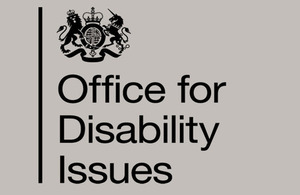A new pilot scheme to manage vulnerable women in the community, when they would otherwise be liable for immigration detention, has been announced by the Immigration Minister today (Monday 3 December).
Working in partnership with Action Foundation, a charity which provides support to asylum seekers, migrants and refugees, the first phase began today and will see up to 21 women supported in the community who would otherwise be detained at Yarl’s Wood Immigration Removal Centre.
The pilot, called Action Access, will last 2 years and will support up to 50 women during that time.
Developing alternatives to detention for those who are vulnerable is part of the government’s response to Stephen Shaw’s second review into the welfare in detention of vulnerable persons.
Immigration Minister, Caroline Nokes, said:
Immigration detention plays a necessary role in our immigration system, but it must be used only when absolutely necessary. We are committed to ensuring that detention is fair and humane and that it protects those who are vulnerable.
I’m pleased to see the launch of our first pilot scheme, which will provide valuable community support and personal stability to a number of women at risk of detention while their case is resolved, and delivers on our commitment to deliver Stephen Shaw’s recommendations.
Julian Prior, CEO of Action Foundation, said:
For many years we have successfully supported some of the most vulnerable people at the end of their asylum claim to avoid destitution, and provide the stability and help they need to make some informed choices about their future.
We are very pleased to use this opportunity to increase our work in this area by supporting women who would otherwise be detained through this new pilot called Action Access.
The Home Office has partnered with the United Nations High Commissioner for Refugees to work with charities, faith groups and local communities to develop a number of pilot schemes that will provide support to a wide range of migrants in the community, including both men and women.
These further pilot schemes will begin in the New Year and will run for 2 years.
The Home Office will use these pilots to understand how it can best support different groups of migrants at risk of immigration detention to resolve their cases within the community, whether that is confirming their status in the UK or returning to their home country.
If these pilot schemes are successful, the Home Office will explore how it can implement this approach on a larger scale.
Matthew Saltmarsh, Acting Representative for UNHCR UK, said:
We welcome the recent decline in the use of immigration detention in the UK and encourage the government to continue this positive trend. This pilot – to manage vulnerable women in the community, when they might otherwise be detained – is an important first step.
UNHCR will continue to bring international best practice experience to the development of alternatives to immigration detention in the UK, and we are fully committed to advising the government on rolling out future pilots in the hope that further reductions in immigration detention will follow.
